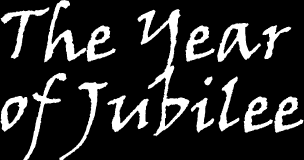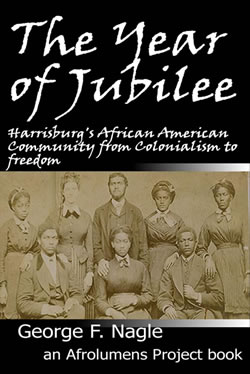
a book about Harrisburg...
by George F. Nagle
Study Areas:
Chapter
Nine
Deluge (continued)
In the Hands of the People
Lincoln sat beside Governor Curtin in the House chamber. After the combined Pennsylvania legislators had settled themselves in, State Senator Robert M. Palmer delivered welcoming remarks on behalf of his chamber, followed by Speaker of the House Elisha W. Davis for the state representatives. Welcoming remarks from both men included pointed references to Pennsylvania’s role in the president-elect’s victory.
Palmer had been in the Wigwam the previous year as part of the Simon Cameron delegation. It was the politically perceptive and powerful Cameronians who reluctantly delivered their votes to Lincoln, only after Cameron’s chances of winning the nomination were killed off, largely through the efforts of the Curtin-led delegation. He welcomed Lincoln on behalf of “the People of Pennsylvania upon whom rests so large a share of the responsibility of your nomination and election.” Palmer’s animosity would be soothed, as would so many of the Cameronians’, by the political rewards coming from the Lincoln administration in the coming months. Robert M. Palmer would be appointed Minister to Argentina on 28 March, but would serve little more than a year before his death in 1862.
Elisha W. Davis was more supportive of the president-elect in his welcome, “pledging the devotion of Pennsylvania to the Union.” Reflecting Curtin’s earlier speech, he said that the state stood ready to provide “both men and money to sustain the government, if need be to enforce the laws.” Davis would stand loyally behind his pledge during the war, serving as Lt. Colonel of the One Hundred and Twenty-First Pennsylvania regiment from September 1862 until April 1863.
In his response, Lincoln acknowledged the words of Palmer and Davis by thanking “your great Commonwealth for the overwhelming support it recently gave, not to me personally, but the cause, which I think a just one, in the late election.” Loud applause interrupted the president-elect—the first of nine demonstrations during his speech that the Commonwealth’s lawmakers were in a more supportive mood than its citizens who gathered in the streets outside. Lincoln then began to tell of his experiences in Philadelphia that morning, telling in vivid detail of the raising of the American flag over Independence Hall, and reflecting on the significance of the whole event:
They had arranged it so that I was given the honor of raising it to the head of its staff, and when it went up I was pleased that it went to its place by the strength of my own feeble arm. When, according to the arrangement, the cord was pulled and it flaunted gloriously to the wind without accident, in the light glowing sunshine of the morning, I could not help hoping that there was in the entire success of that beautiful ceremony at least something of an omen of what is to come. Nor could I help feeling then, as I often have felt, in the whole of the proceeding I was a very humble instrument. I had not provided the flag, I had not made the arrangements for elevating it to its place, I had applied but a very small portion of my feeble strength in raising it; in the whole transaction I was in the hands of the people who had arranged it, and if I can have the same generous cooperation of the people of the nation, I think the flag of our country may yet be kept flaunting gloriously.
The New York Herald reported that “loud, enthusiastic and continued cheering” accompanied the last few lines of that portion of Lincoln’s speech. Pennsylvania’s lawmakers recognized that a signal change had taken place in the president-elect’s philosophy. Unlike his speech in Philadelphia, delivered in the cradle of American democracy, and in previous speeches, he did not emphasize the role of the government in preserving the Union, but rather it was “in the hands of the people.” Abraham Lincoln was to be merely an instrument of the will of the people—albeit an instrument dedicated to the preservation of democracy and federal government.94
In Harrisburg this day, the text of the President-Elect’s Philadelphia speech was printed in the pages of the local newspapers, and was read by everyone, including, presumably, by many of the city’s African American residents, who took a special interest in his election. To Doctor William Jones, who had traveled from Harrisburg to Philadelphia in 1859 to present testimony that he hoped would free one of his neighbors from a lifetime of bondage, Mr. Lincoln’s words may have seemed bittersweet. The president-elect had told the people of Philadelphia “I assure you and your mayor that I had hoped on this occasion, and on all occasions during my life, that I shall do nothing inconsistent with the teachings of these holy and most sacred walls…All my political warfare has been in favor of the teachings that come forth from these sacred walls.” A little later he said, “In due time the weights would be lifted from the shoulders of all men. This is the sentiment embodied in the Declaration of Independence.”95
Yet Jones, in testifying at a slave hearing inside of Independence Hall, had experienced first hand the dual-purposed nature of that document. He must have wondered if the president-elect, despite the promise of his campaign, would also end up reconciling slavery with independence, in the name of keeping the peace. Perhaps Joseph Popel wondered the same thing, or perhaps he latched on to Mr. Lincoln’s rather startling statement that he would rather die than allow the country to surrender the promise of liberty for all. Words such as those would certainly appeal to a man who had already put his own life on the line for another man’s liberty.
Notes
94. This analogy, which constituted about half of the entire speech delivered in Harrisburg, seems to have been developed on the train between Philadelphia and Harrisburg. Its importance is underscored by its reappearance a short time later in the concluding paragraphs of Lincoln’s Inaugural Address, delivered on 4 March in Washington. After a discussion of the powers and wisdom retained by the people of this country, the new president again refers in that speech to the hands of the people, but this time he was not referring to his supporters: “In your hands, my dissatisfied fellow-countrymen, and not in mine, is the momentous issue of civil war. The Government will not assail you. You can have no conflict without being yourselves the aggressors. You have no oath registered in heaven to destroy the Government, while I shall have the most solemn one to "preserve, protect, and defend it." New York Herald, 23 February 1861.
95. Pennsylvania
Telegraph, 22 February 1861.
Caution: Copyrighted material. Published September 2010.
© 2010 George F. Nagle
This is the first in a series of books from the Afrolumens Project. Drawing on a large number of sources, and making good use of the treasure trove of information on the pages of the Afrolumens Project, this is the first truly comprehensive history of Harrisburg's African American community.

